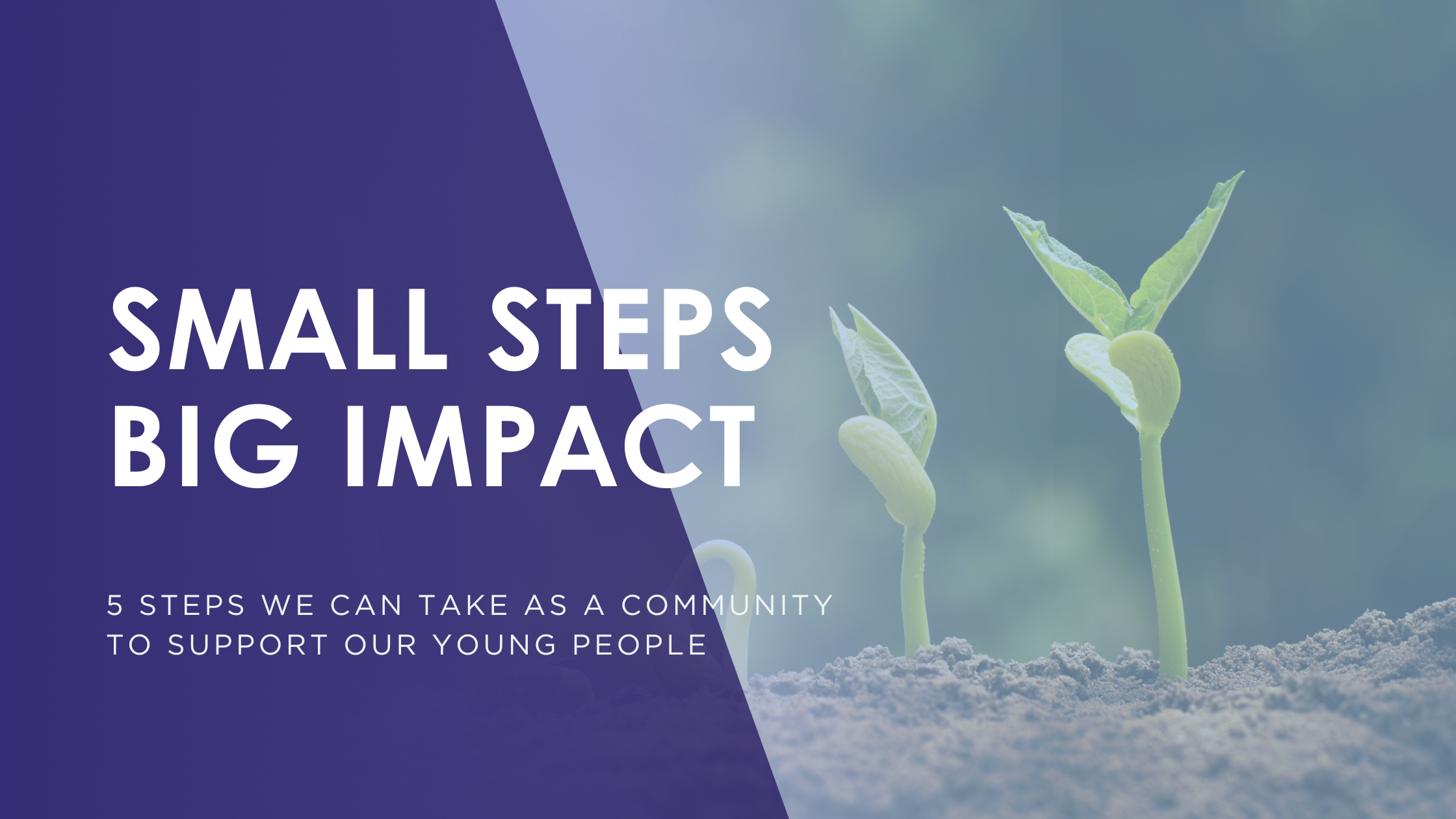Community Support: Mental Health Awareness Week 2025
This Mental Health Awareness Week 2025, let’s remember that small things make a big difference.
The theme for this years Mental Health Awareness Week is ‘Community’. Supporting children and young people who are struggling means also supporting the members of the community who come into contact with them, and their families.
At a recent event, hosted by Bolster Community in Newry, Northern Ireland, I listened to Katriona O’Sullivan tell her story. It was a riveting and inspirational experience listening to her talk of her journey through poverty, teen pregnancy and numerous other challenges, all of which you can read about in her book ‘Poor’. The one standout moment for me was when a member of the audience asked her what made a difference. What was it that we could do to help, as people in the community around children who are struggling? What could we do that would make a difference to the young people we support?
She paused for a moment and told us about the people she had met on her journey, the people who made her feel seen. The teacher who taught her how to get washed in the school toilets, the teacher who encouraged her to read and convinced her to get one GCSE, the nurse who made her a cup of tea. She may not have shown it at the time, even responded angrily or with contempt, but those people made her feel seen and valued - and it made a difference.
For the children and young people in our lives who are struggling, as a community we can help make a difference, even if it doesn’t feel like we are. Supporting children nd young people who are struggling with emotional and behavioural challenges like anxiety, emotional overwhelm, and those associated with neurodivergence, doesn’t always mean having all the answers or being a trained professional. Sometimes, it’s the small, consistent gestures from everyday people - teachers, neighbours, family friends, shopkeepers, sports coaches, teachers - that make the difference.
Here are five small steps you can take as part of their community.
1.Smile
Offer a smile - let our children and young people feel seen and valued can go a long way to making a difference to how they see and value themselves. A genuine smile is an invitation; ‘I see you. You matter.’ Many young people carry the quiet burden of invisibility, feeling like no one notices or acknowledges them. A simple smile isn’t about pretending things are okay - it’s about being present and human. It’s a mindful act of connection, showing up to the moment with openness, even if we don’t know their story.
2. Listen
Just listen - we don’t always have to come up with solutions. Listening validates the feelings and helps develop trust. Sometimes the most important thing we can do is not jump in with advice. When a young person talks, about a bad day, a fear, a meltdown, or even nothing at all, we can be the one is just there with them. We all have uncomfortable thoughts and feelings, and the goal isn’t to eliminate or 'fix’ them, but to make space for them. Listening without judgement allows young people to experience their emotions without shame.
3. Talk
Talk about our own challenges - be open about how we don’t have it all together all of the time. This helps to normalise their own struggles and lets them feel less alone. Vulnerability is powerful. When we share our own tough moments, with senstivity and age-appropriateness, it shows them that being human means feeling overwhelmed, scared or uncertain sometimes. It also reduces the sense of isolation they may feel. When we share our own inner experiences without judgement, we help young people see theirs in the same light.
4. Care
Being young is not easy - it may not seem like a big deal to us but for them it is massive. Remember that even the smallest things can feel like too much. The things young people struggle with can seem minor from the outside - getting out of bed, answering a message, walking into a noisy room. It can be easy to underestimate what they are going through, especially when we don’t share the same challenges. But for them those moments can seem overwhelming, even impossible. Caring means taking their experience seriously, even if it doesn’t make sense to us right away. A small show of understanding, a quiet ‘I get this is hard for you’ can create a huge sense of safety and validation.
5. Be There
Be available - even if they don’t come to you, don’t talk or don’t even seem to care. Sometimes talking about it is just too hard, but knowing someone is there if you ever can, that’s what’s important. Being there, reliably and non-intrusively, sends a powerful message; ‘You are not alone’. You don’t need to have the perfect words or solutions. You just need to show up, to hold space, to be steady - and in time they may reach back, or not.
Ready to do more?
If you are part of a school, community group, workplace, or family system that wants to do more to support children and young people experiencing anxiety, OCD, autism, ADHD or emotional/behavioural overwhelm, we offer trainings and workshops designed to build community-wide understanding, awareness and acceptance. These sessions are practical, compassionate, and deeply rooted in reasearch-informemd approaches. Find out more here.
Join us in creating spaces where all young people feel seen, heard and supported.
Get in touch today to learn more about our upcoming sessions or to host a training in your setting.

